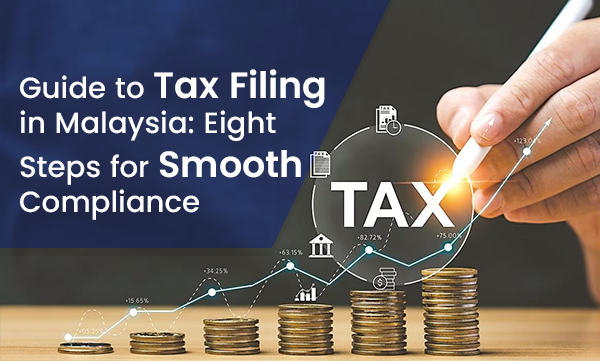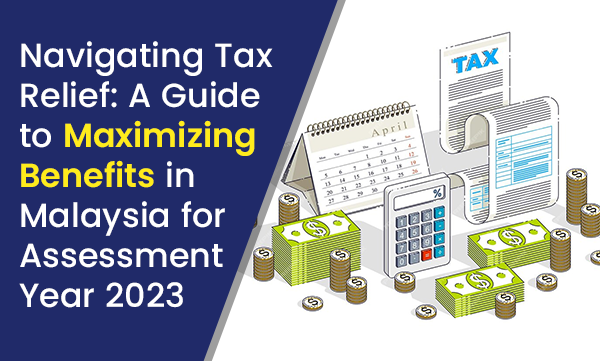
Know your Statutory Contributions & Deductions!
What are Statutory Contributions and Deductions?
Mastering Payroll Management involves understanding various statutory contributions and deductions. These contributions and deductions, mandated by law, are crucial components of payroll processing for businesses across industries. But what exactly are statutory contributions and deductions? In essence, they represent compulsory withholdings from an employee's wages, typically enforced by government authorities. These deductions serve diverse purposes, ranging from funding social security programs to supporting healthcare initiatives and inc
ome tax obligations. Understanding and correctly implementing statutory deductions is vital for businesses to ensure compliance with legal requirements while effectively managing their payroll responsibilities. In this blog post, we will delve deeper into the different types of statutory contributions and deductions in Malaysia.
1. Employees Provident Fund (EPF):
The Employees Provident Fund (EPF) was established by the Malaysian government in 1951, with the goal of assisting the country's workforce in saving for their retirement, as mandated by the Employees Provident Fund Act (1991).
EPF contributions are obligatory for Malaysian citizens and permanent residents, while they remain optional for foreign employees. However, if a foreign employee chooses to contribute, both the employer and employee are free to do so.
The process involves deducting EPF payments from an employee's salary, which are then remitted to the EPF by the employer on behalf of the employee. Additionally, employers must make their own contributions to the EPF for each of their employees.
The rates of deduction for employees and contribution for employers vary based on factors such as the employee's age, monthly wages and citizenship status. These contribution rates detailed in the Third Schedule, EPF Act 1991 .
2. The Social Security Organisation (SOCSO)
The Social Security Organisation (SOCSO) oversees the administration of social security funds in Malaysia.
SOCSO contributions are obligatory for all employees, irrespective of their citizenship status, whether they are Malaysian citizens, permanent residents, or foreign workers.
Both employers and employees are mandated to make monthly contributions as stipulated by the rates set forth in the Employees’ Social Security Act (1969). Contribution rates can be found here
3. Employee Insurance System (EIS)
The Employee Insurance System (EIS) introduced to help employees who lost their job with financial assistance up to three (3) to six (6) months. It is a mandatory contribution deducted from employees' wages and all private sector employers required to make monthly contributions on behalf of their employees.
This obligation primarily extends to Malaysian citizens, permanent residents and temporary residents, excluding certain categories such as government employees, domestic workers, self-employed individuals, and employees aged 57 and above without prior contributions.
Contributions to the EIS are fixed at 0.4% of the assumed monthly salary of the employee, with 0.2% contributed by the employer and the remaining 0.2% deducted from the employee's monthly salary. Contribution rates are capped at an assumed monthly salary of RM5000.
Administered by SOCSO, the EIS aims to provide temporary relief to employees who is actively seeking new employment.
However, under certain circumstances, including:
- voluntary resignation
- expiry of fixed-term contracts
- mutual termination agreements between employee and employer
- project completion as per contract terms
- retirement
- Termination due to misconduct
may preclude individuals from claiming benefits from the EIS.
To qualify for EIS benefits, employees must demonstrate their ability, availability, and active pursuit of employment opportunities.
4. Human Resource Development Corporation (HRD Corp) Levy
The Human Resources Development Corp (HRDC) levy is a compulsory contribution applicable to businesses employing ten or more individuals, as mandated by the Human Resources Development Act of 2001. Entities with at least 10 local employees are required to enroll, while those with 5 to 9 local employees have the choice to do so.
This levy aims to bolster workforce development by financing training initiatives for employees, apprentices, and trainees within the Malaysian labor market.
The levy rate for each Malaysian employee is 1% from the wages and only the employer are required to contribute.
5. Subscription Fees of Trade Unions
According to the Employment Act, employees has the right to join and establish trade unions, regardless of their contractual agreements. Furthermore, they maintain the privilege to authorize the deduction of union fees from their wages on a monthly basis.
Moreover, safeguarding these rights of employees, the Industrial Relations Act stipulates that employers are prohibited from impeding such freedoms. Additionally, union members are granted the right to take leave for participation in union-related activities.
Upon the employee's request, employers are permitted to deduct monthly trade union subscription fees from their wages. This request must be formally submitted in writing, in accordance with Section 24 of the Employment Act.
6. The National Higher Education Fund Corporation (PTPTN) Loan Repayment
The National Higher Education Fund Corporation, commonly known as Perbadanan Tabungan Pendidikan Tinggi Nasional (PTPTN), is a governmental organization dedicated to providing study loans specifically for tertiary education to Malaysian students.
Many students opt for PTPTN loans due to their relatively low interest rates, making it a popular choice for funding education. Additionally, there's an attractive incentive associated with these loans: students achieving a First Class Honours degree may qualify to convert their loan into a scholarship, potentially exempting them from repayment, subject to application approval.
Repayment typically commences 12 months after completion of studies, with the option for monthly deductions from the borrower's salary. Employers can facilitate these deductions upon written request from the employee, as stipulated in the Perbadanan Tabungan Pendidikan Tinggi Nasional Act of 1997.
7. Monthly tax deductions/ Potongan Cukai Bulanan (MTD/PCB)
Under the provisions of the Income Tax Act 1967, employers are obligated to deduct a portion of an employee's pay each month, commonly known as Potongan Cukai Bulanan (PCB). This deduction is remitted to the Inland Revenue Board of Malaysia (IRBM/LHDN) by the employer on behalf of their employees, with a deadline set for the 15th of the subsequent month.
The rate of income tax deducted is contingent upon the employee's earnings and their residential status. You can compute the PCB for your employees utilizing the Computerised Payroll Calculation Method through a payroll Management system verified by LHDN, or by accessing the e-Jadual PCB via e-CP39 on the IRBM website.
Relevant Acts
- Employment Act (Updated copy as at 1 Jan 2023)
- Employment (Amendment) Act (2022)
- Employees Provident Fund Act (1991)
- Employees’ Social Security Act (1969)
- Employees’ Social Security (Amendment) Act (2022)
- Employment Insurance System Act 2017
- Employment Insurance System(Amendment) Act (2022)
- Income Tax Act 1967


